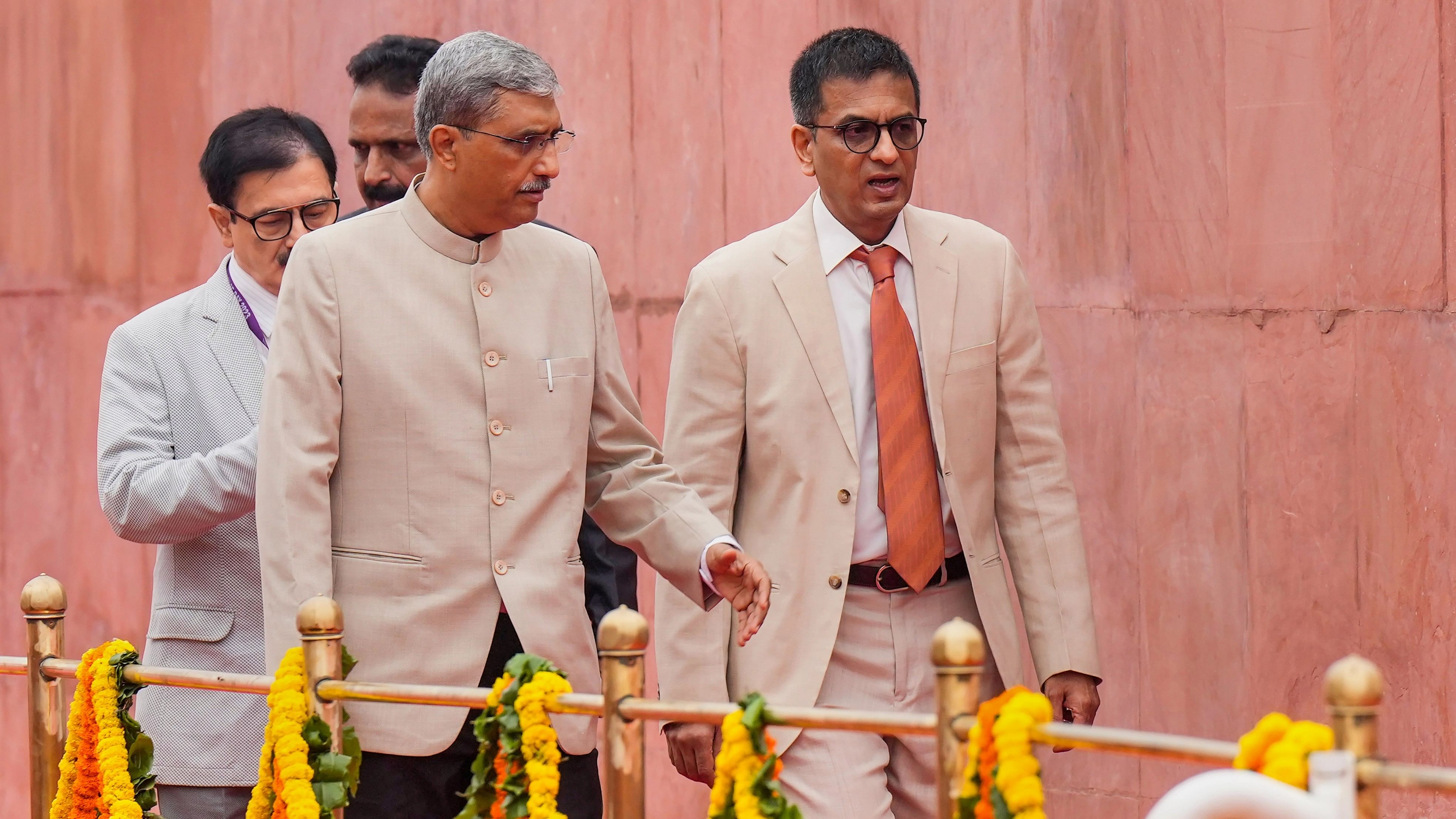
Chief Justice of India (CJI) Justice D Y Chandrachud at the Red Fort on the occasion of the 77th Independence Day.
Credit: PTI Photo
Prime Minister Narendra Modi on Tuesday lauded the Supreme Court for its move to translate operative parts of its judgments in regional languages, with Chief Justice of India D Y Chandrachud acknowledging the praise.
Addressing the nation from the ramparts of Red Fort on Independence Day, the prime minister said, 'We have given emphasis on teaching in mother tongue.' He observed that the Supreme Court has decided to translate operative part of the judgment in language spoken by the litigant.
'I thank the Supreme Court. It has said that now the operative part of the judgment will be translated in the language the litigant speaks,' Modi said.
CJI Chandrachud, who was amongst the audience, responded with a 'namaste' gesture.
'The relevance of mother tongue is increasing,' Modi said.
The CJI had recently announced that the Supreme Court would use artificial intelligence to provide judgements, written in English, in regional languages.
Justice Chandrachud had said that English, used for writing judgements, is not comprehensible, “particularly in its legal avatar, to 99.9 per cent of our citizens”.
He said the top court would initially focus on translating judgments into four languages -- Hindi, Tamil, Gujarati, and Odia and gradually, the verdicts will be made available in all scheduled languages.
Some of the high courts have also started providing judgements in regional languages apart from English.
Earlier, the top court had decided to provide its judgments in nine regional languages in 2019 and the move was acknowledged and hailed by the then president Ram Nath Kovind.